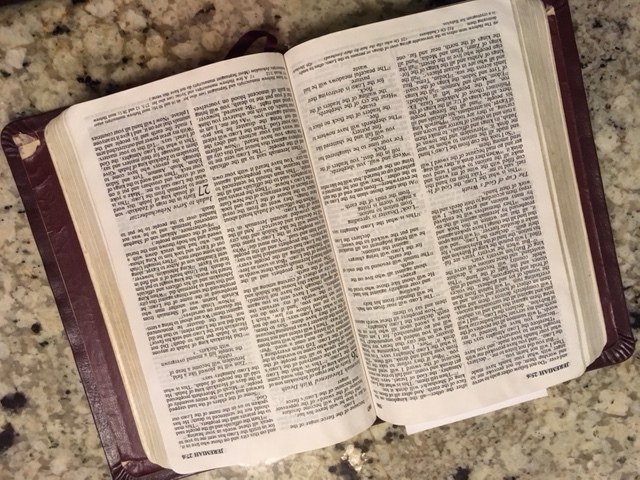Becoming More Contemplative, part 3
Anne Lamott, one of my favorite authors, shares wisdom that was passed on to her by a dear priest friend. “The opposite of faith is not doubt, but certainty.”[i] The religious tradition of my youth most often invited me to a faith that required bold certainty. Ironically, for me this brand of certainty gave birth to doubt and complex questioning. The world as I experienced it was not something that I could filter through absolutes and always. The black and white positions always bled into gray. I encountered much uncertainty.
One of the gifts of my early religious tradition is that I know parts of my Bible fairly well. Stories were told and verses memorized while I participated in so many things “church” as I grew up and out into the world. As I journeyed along into young adulthood, Bible study became a significant part of my life. But as I observed the fear and hatred and attacks on others made in Jesus’ name while wielding the Bible as weapon, I took a step back. The old questions about the violence of the Old Testament, reconciling science and history in this context, pain and suffering and God’s providence, not to mention the view of women, slaves, and homosexuals were overwhelming. It wasn’t adding up or making sense anymore.
On several occasions, as I began to read Christian authors with perspectives different from the conservative evangelical view of my youth, my soul would resonate with the words before me. As writers such as Richard Rohr, Brennan Manning, and the like quoted scripture while communicating their ideas, I would often say to myself, “Does the Bible really say that?” And to my surprise, I would look it up, and it did indeed say things that I had never processed before. In particular, many of the more challenging to live out words of Jesus had not been emphasized in the teaching of my youth, but nonetheless, they were right there in my Bible printed in red. The surprising words tended to be messages that challenge our Western cultural values and the American conservative Christian status quo.
One day as I sat in an adult Sunday school class, a fellow member shared that a few years back he had accepted the challenge to read through the Bible in a year. He then confessed that doing so sparked a test of his faith and had opened up a chasm of doubt around his Christian belief. It had rocked his world. The easy, tie it up with a bow answers had been obliterated. His words resonated with me.
So many of the culture wars and slinging of Bible verses to defend a point of view hinge on what we believe and how we approach this sacred text. Coming from a “God said it, I believe it, that settles it” background, I needed to figure out for myself what my relationship and beliefs are about this book. This is a journey very much still in progress.
In Adam Hamilton’s Making Sense of the Bible, he expresses a view that helps as I search. “Instead of assuming that the Bible is the result of God’s word-for-word inspiration of its authors, or that the Bible is merely a human book, I’ve suggested that the scriptures were written by human beings who were inspired by God yet wrote in the light of their own experiences, the scientific knowledge they had access to, and the historical circumstances in which they lived. They sought to address the needs of the communities to whom they wrote. They were shaped not only by the Spirit but by their own theological and moral convictions, assumptions, and presuppositions.”[ii]
I was once sitting in a coffee shop trying to mind my own business as two men were seated across the way discussing one of the apostle Paul’s letters. One of the guys started getting louder and more animated and finally exclaimed with great emotion, “Paul is such a jackass!” I have at times felt this same way. It is always dangerous when we cherry pick a verse, apply it to whatever we choose, and only consider it from our 21st century perch. The Bible is so much more complex. Making peace with all of this is ever evolving.
Instead of a person who has all of the answers and can back them up with chapter and verse, I am learning to sit with and even sometimes delight in the questions, the mystery of it all. I agree with Thomas Merton who said, I think a man [or woman] is known better by his questions than his answers.”[iii] I imagine that there will always be wrestling, questioning, and humility to be learned as I proceed. I will never "arrive."
[i] Anne Lamott, Plan B: Further Thoughts on Faith
[ii] Adam Hamilton, Making Sense of the Bible: Rediscovering the Power of Scripture Today, Harper One, New York, NY,
[iii] John Moses, Divine Discontent: The Prophetic Voice of Thomas Merton, Bloomsbury Publishing, London, England, p. 72
